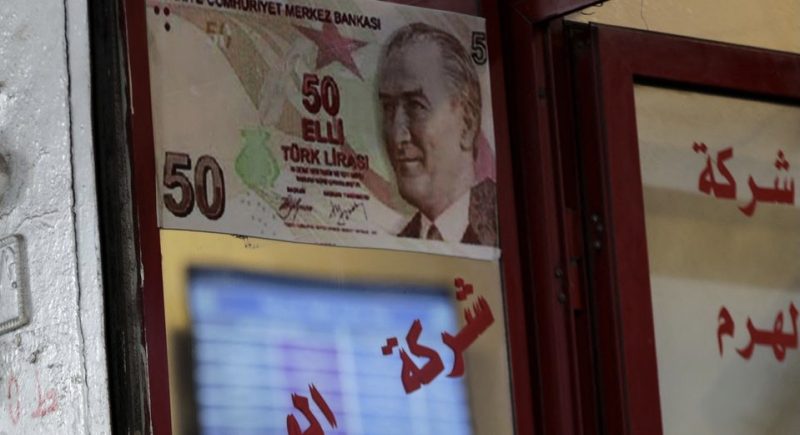SULAIMANI — The Turkish lira’scrisis accelerated on Friday as it tumbled 3.5% to a fresh all-time low, one day after the central bank delivered another hefty rate cut under President Tayyip Erdogan’s unorthodox economic programme.
The lira weakened as far as 16.44 versus the dollar at 1020 GMT.
It has shed more than half its value this year-including 38% in the last 30 days alone -deeply unsettling the major emerging market economy, according to Reuters.
Erdogan’s decision to push through 500 basis points of monetary easing since September has sent inflation soaring above 21%, and it is likely to blow through 30% next year due to ballooning import prices, Reuters cited economists as saying.
Knock-on effects have been fast and painful as Turks have watched their savings and earnings melt.
Erdogan announced an emergency 50% hike to the minimum wage, to 4,250 lira ($275) per month next year. But that is expected to boost overall consumer price inflation by 3.5 to 10 percentage points.
The hike affects some six million workers but, given the sharp lira depreciation, the new minimum wage is still lower than the equivalent $380 a year earlier.
“We believe that the current mix of policies is essentially unsustainable,” Maxim Rybnikov, director sovereign ratings for the EMEA region at S&P Global Ratings, said in a webcast, according to Reuters.
The central bank’s 100-point rate cut on Thursday sent Turkey’s real rate deeper into negative territory.
The bank signaled it would pause the easing cycle to monitor its effects in the next three months, when “all aspects of the policy framework will be reassessed in order to create a foundation for a sustainable price stability,” it said.
“Possibly that means other interest rate channels could be under consideration,” Rybnikov said. The central bank has in the past used an interest rate corridor in setting rates.
If the rate-cutting cycle were to continue the possibility of capital controls could be on the rise, Rybnikov added. “This is not our base line…we believe that as a policy measure, they would be used as a measure of last resort.”
Erdogan’s new economic plan prioritises exports and lending, even though economists and opposition lawmakers have widely criticised the policy as reckless. With inflation soaring above 21%, Turks’ budgets have been sharply eroded.
The central bank has intervened four times in the currency market in the last two weeks, selling dollars to slow the lira slide and eating into its already depleted foreign reserves.
(Esta Media Network/Reuters)












